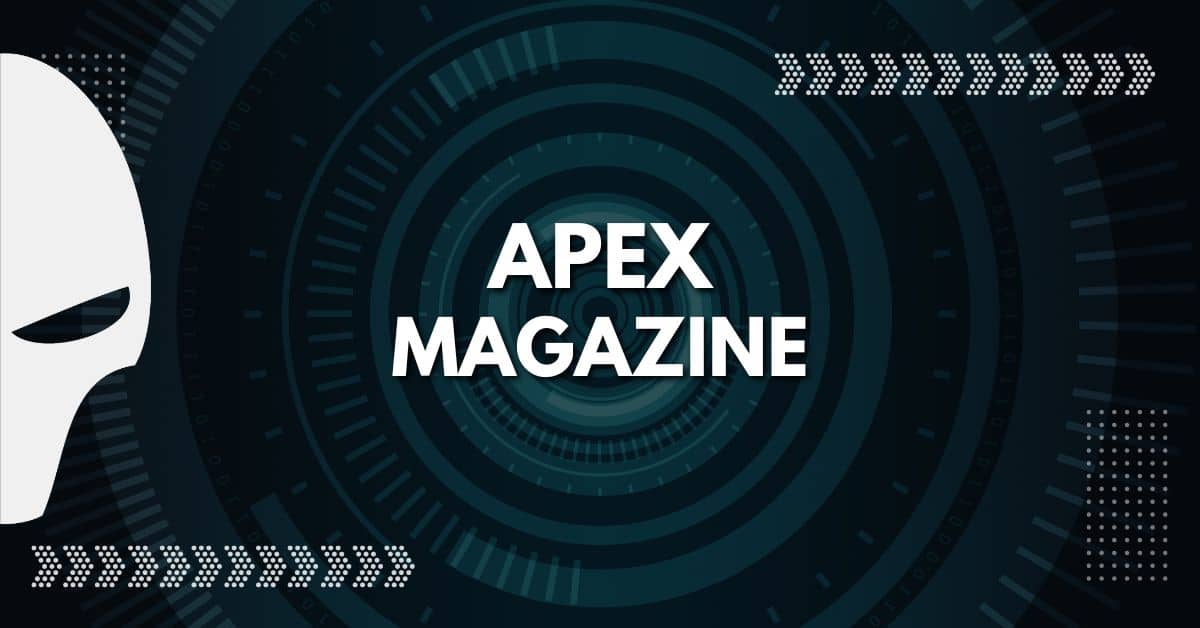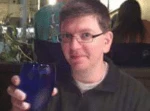
I knew I loved horror before I knew I was gay.
Oh, I knew I was…different from an early age, but I had no real concept of sexuality until I was older. However, by the time I was 5 years old I had already developed a deep and abiding love of the horror genre. My parents weren’t particularly big horror fans, so I’m not sure where it came from. Maybe I was just born that way.
I was approximately 10 when I first started writing. Just little one-page horror tales that were pretty much Twilight Zone rip-offs, but I didn’t become serious about writing—I didn’t really recognize it as my passion and what I wanted to do with my life—until high school.
This, coincidentally, was also when I started to come to grips with the fact that I was gay.
The two things don’t really seem to have anything to do with one another…at least on the surface, but for me they did become intertwined in a complex knot of worry and doubt.
Coming of age in the late 80s and early 90s was a different world for young gay people. There had been progress—there were no more raids on gay bars and people being arrested, homosexuality had even been declassified as a mental illness—but the AIDS epidemic damaged the public perception of gays and lesbians, and we were still viewed as freaks and aliens, not part of “normal” society. Or entertainment, for that matter. There were no regular gay characters on television, few in mainstream movies, and openly gay writers mostly wrote specifically “gay fiction.” There were certainly no openly gay writers working in the horror genre.
Now you may say, “But what about Clive Barker?” Barker was definitely a force in the publishing and movie industries when I was young, but he didn’t officially “come out” until around 1995, so when I first started dreaming about becoming a horror writer, there were no real role models for me.
There were some straight women in the horror field that did include homosexuality in their works—Anne Rice and Poppy Z. Brite come to mind—and I even found some “gay horror novels” written by openly gay men that turned out to be glorified porn masquerading as vampire fiction. There was no quality mainstream horror fiction being published by openly gay men at that time.
This really gave me pause. I was already coming to realize that I did not want to live my life in the closet, ashamed of myself and trying to hide certain aspects of who I am. But what did this mean for any potential writing career I might have? Could I be openly gay and still publish the kind of fiction in which I was interested?
As it turned out, I had plenty of time to ponder these questions. I wrote voraciously all through college, subbing to various horror magazines I found in the Writer’s Market, but I never sold anything. Then once I graduated, life and work stress actually led me away from writing for several years. It was not a particularly happy time in my life, partially because I was not indulging my passion.
However, in 2004 I returned to writing and subbing, now utilizing the internet, and sold my first short story in 2005. From there, I started publishing rather frequently in a variety of small magazines, e-zines, and anthologies. My sexuality wasn’t a major issue at that point, even though some of my stories featured gay characters, but I do remember one exchange with an editor that struck me. The magazine he worked for did not buy my story, but he gave me some pointers, and one was that while they didn’t mind the story featuring a gay couple, they did feel having the couple call one another by terms of endearment like “honey” or “sweetheart” was too much and just made them uncomfortable. Seemed an odd comment to me, they were okay with a gay couple in the story as long as the couple don’t show casual affection? Curious, but I didn’t let it bother me too much.
In 2009, I fulfilled a lifelong dream and finally published my first book, A Laymon Kind of Night with Sideshow Press. It was like a metaphoric foot in the proverbial door, and I started publishing books regularly after that with a variety of different publishers. And the world was very different for gay people than it had been when I was a teenager. More visibility, more acceptance, more rights…and I thought that maybe my dream of being openly gay and a horror writer was attainable.
However, I still had a bit of a bumpy start, getting some words of caution from publishers that made me fear that perhaps my optimism was premature. I’m not going to name names here because all these publishers I believe were well-meaning and intended no harm, but I do want to give a rundown of some of the things I was told as I was starting out.
• One publisher informed me that being so openly gay on message boards would ruin any potential writing career I might have.
• Since I write some stories with straight main characters and some with gay main characters, I was advised to hold back the stuff with gay characters until I’d published several books with straight characters first, so as not to get labeled as a “gay horror writer.”
• I was told that I could potentially alienate the “heterosexual male fan base of horror,” which would mean death for my publishing career.
• It was suggested that the stuff I wrote that featured gay characters would need to be marketed primarily to a gay audience as it probably wouldn’t go over well with the typical horror audience.
I truly don’t believe any of these comments were made to insult or out of an innate sense of prejudice. I think they were just honestly concerned and wanted to be helpful. There are two incidents from this time period that really stick out in my mind though, and I want to share them in more detail.
I had written a zombie novella entitled Asylum that took place entirely inside a gay club, and all but one of the characters in the piece was gay. I was quite proud of the story and really wanted to find a home for it, but it wasn’t easy. Not to suggest it was solely because of the gay content. I know at least one publisher felt the overall plot was too traditional, another that the ending didn’t work. However, one publisher did tell me based upon a synopsis that his readers were straight males and would not be interested in a story that featured almost all gay characters. Another suggested I should try publishers that specialized in gay fiction as opposed to horror fiction. I was becoming disillusioned and was just starting to seriously consider self-publishing when the novella did find a home with the Apex imprint The Zombie Feed.
Another novel of mine featured a rather large cast of characters, two of which were gay. The publisher that bought the book seemed to have no real issue with this…except for one sticking point. And it was something that baffled, amused, and confused me. There was a scene where my gay male lead calls the man he is dating “beautiful.” The publisher told me this had to be changed because “men don’t refer to other men as beautiful.” My response was, “Some do. Gay men do.” He pointed out this was a horror novel and would mostly be read by straight men, and since they wouldn’t call another man “beautiful,” this would be distracting to them. It reminded me of that conversation all those years before about the gay couple in my story calling each other “honey.” Was the message that it was okay to have gay characters as long as they didn’t read too gay? I wasn’t sure. Ultimately, that one word wasn’t that big a deal and I did change it, but I won’t lie, a part of me to this day is bothered by my acquiescence.
All these things enumerated above were quite frightening to someone just starting to see their dream of being a published writer come true. I worried that the sixteen-year-old me had been right, that being openly gay and a horror writer were not compatible. As my early books were released, I braced myself for the possibility that there would be no place for me in the horror field.
But I found that, as is often the case in life, my fears were greatly exaggerated. If any one book really helped allay my worries, it was Asylum. The book was released and marketed simply as a horror tale, a zombie story. Apex treated the gay aspect of the tale as a non-issue, the same way the sexuality of straight characters in horror fiction is a non-issue. I was really impressed by this, but the question then became, would the audience treat it so casually?
And the answer was by and large, yes. I’m not going to pretend the book set sales records, but it was one of my best-selling titles and the majority of the reviews were overwhelmingly positive. Most gratifying to me was the number of straight male readers who gave the story an enthusiastic thumb up. In some instances, I got the impression that they really appreciated the fact that I had peopled a traditional horror setup with characters one doesn’t traditionally see in such stories.
While not all of my books and stories feature prominent gay characters, several do. They’ve all been released by horror publishers, and readers seem to make no real distinction between these and the ones without gay characters. As stated earlier, I think some find it refreshing to see different kinds of characters in horror fiction, and some straight readers have expressed that they’ve gone in thinking they’ll find it hard to relate to the characters only to find that isn’t the case at all. At their core, people are people.
Of course, none of this is to suggest I think I’m more successful than I am. I’m a small press author struggling to move copies and make a name for myself, but I don’t feel being openly gay or featuring gay characters hinders me in that pursuit one bit.
I look out over the landscape of horror fiction these days, and it is a much more diverse place. In addition to Clive Barker, other openly gay writers such as Lee Thomas, Michael Rowe, Douglas Clegg, and Christopher Rice are making names for themselves in the horror field. Even John Saul has come out of the closet.
Not to suggest that prejudice and homophobia don’t still exist, both in publishing and in the world at large, but I don’t believe it is as prevalent as it once was and is no longer an obstacle for a young gay writer that wants to work in the horror genre. My feeling is that those well-meaning publishers that gave me those warnings when I was starting out were underestimating the horror audience.
It’s a whole new world in horror, one I’m proud to be a part of it.










